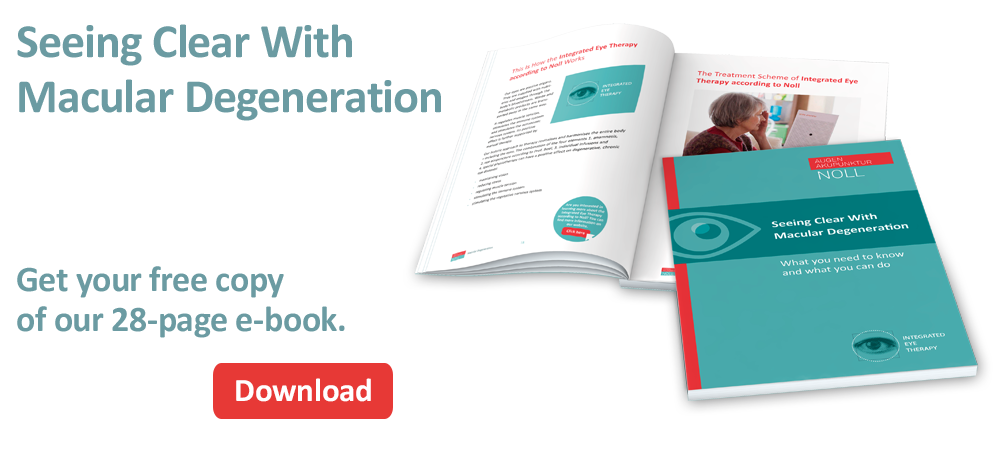What treatments does conventional medicine offer for macular degeneration?
Do you suspect that you might suffer from AMD (age-related macular degeneration)? Or has your ophthalmologist already diagnosed this? Then the bad news first: For dry and wet macular degeneration there is so far no classical conventional therapy or a drug that stops or cures the disease.
We give you an overview about the conventional medical treatment methods of macular degeneration (AMD – age-related macular degeneration)
We would like to give you a brief overview here of the various treatments offered in eye doctors’ practices or eye clinics. Perhaps you have already tried some of them on your own body.
In the case of the dry form, there are no medications or treatments so far, only prevention through a healthy lifestyle is recommended by doctors. Above all a vitamin and mineral-material-rich nutrition as well as the renouncement of smoking are mentioned.
It is important for those affected by AMD (age-related macular degeneration) to change their behavior in the early stages before the photoreceptors die and vision is permanently damaged.
Conventional medical treatment of wet macular degeneration
In the wet form of macular degeneration, the symptoms have been treated in classical medicine and ophthalmology with high-dose drugs since about 2006. The preparations were mainly aimed at the reduction of the growth factor VEGF. This triggers the typical formation of pathological blood vessels at the site of sharpest vision in the retina.
 The therapy: In an outpatient procedure, the drugs are injected directly into the vitreous body of the eye one to three times a month.
The therapy: In an outpatient procedure, the drugs are injected directly into the vitreous body of the eye one to three times a month.
High costs in the treatment of wet macular degeneration
What initially looked like a blessing for patients has not been fully realized. The high annual costs of about €15,000 per patient (source: Arznei-Telegram.de) are offset by frequent side effects such as conjunctival hemorrhages, cataract, pain in the eye, vitreous detachment, vitreous opacities and increased intraocular pressure.
Massive possible side effects not excluded
Serious side effects include endophthalmitis, a severe infection in the eye. Ultimately, there are few data on how patients have benefited from therapy with a VEGF inhibitor.
For many years, laser treatment (fluorescein angiography) was also the only method for wet AMD. It is reported to have slowed vision loss to a limited extent.
Does surgery help in the treatment of macular degeneration?
Meanwhile, some eye clinics also offer surgery for macular degeneration. But according to our knowledge these procedures are still in their infancy. A real benefit of these risky interventions could not be proven yet.
Offered are e.g. the surgical removal of the hemorrhages by incisions into the retina. Another technique is the transplantation of parts of the choroid. However, even renowned eye clinics are still critical about this topic.

